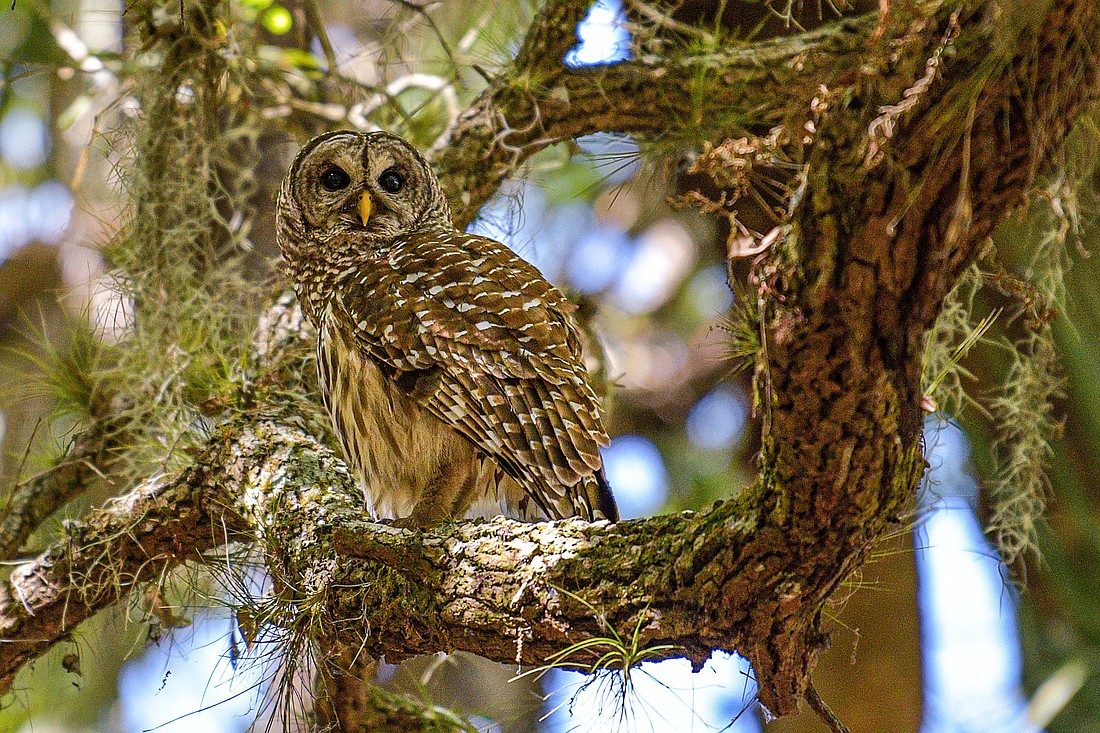- April 23, 2024
-
-
Loading

Loading

With their large dark eyes, yellow beak, namesake horizontal stripes and a distinctive call, barred owls are commonly heard, if not often seen.
One of five resident owl species in Florida, though mostly active at night, they also call and hunt in the daytime. These sizable owls nest in large tree cavities. And as, like other owls, they can't excavate their own nests, their preferred habitats are deep forests, where they can easily find a large tree with a cavity created by disease, a broken branch or a storm.
Extremely territorial, barred owls will chase away intruders. An owl adaptation which helps them to be highly vigilant to threats is the ability to swivel their head to look behind them. With 14 neck bones (twice the number we have) they can turn their heads 270 degrees.
Barred owls typically hunt by flying low below the canopy in the woods. When their habitats are fragmented by roadways and development, this can lead to collisions with cars and fencing. Also, given their need for large trees for nesting and roosting, they're vulnerable to habitat loss. And, barred owls are threatened by the use of toxic rodenticides, as they can become sick and die when they consume poisoned rodents.
Instead of removing old trees with hollow spots, we can leave them to welcome owls. Or provide artificial habitats, such as owl boxes. This will not only help the owls, but will also naturally control rodents, removing the need for poison. And by keeping our roadsides trash-free, therefore not attracting rodents, and taking care when driving at night, we can make our roadsides safer for owls.
Save our Seabirds is a non-profit organization whose mission is to rescue and rehabilitate sick and injured birds, releasing as many as they can, while educating our community about avoiding injuries and preserving habitats.